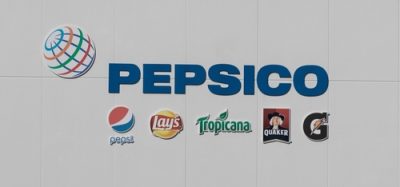Nanobubble discovery could revolutionise brewing industry
- Like
- Digg
- Del
- Tumblr
- VKontakte
- Buffer
- Love This
- Odnoklassniki
- Meneame
- Blogger
- Amazon
- Yahoo Mail
- Gmail
- AOL
- Newsvine
- HackerNews
- Evernote
- MySpace
- Mail.ru
- Viadeo
- Line
- Comments
- Yummly
- SMS
- Viber
- Telegram
- Subscribe
- Skype
- Facebook Messenger
- Kakao
- LiveJournal
- Yammer
- Edgar
- Fintel
- Mix
- Instapaper
- Copy Link
Posted: 10 May 2020 | Sam Mehmet (New Food) | No comments yet
The challenge for scientists to date is said to have been the development of easily controlled methods to promote nanobubble formation and nanobubble release.


Researchers at the University College Dublin (UCD) have discovered a new energy-efficient method to generate and release substantial volumes of metastable, nano-scale gas bubbles in water, in excess of natural solubility levels.
The discovery reportedly has the potential to disrupt a number of industries including; wastewater treatment, gas storage, food, bio-pharma and brewing.
Micron-sized bubbles are tiny gas bubbles with a diameter of less than 50 micron (μm); a micron (μm) is a millionth of a metre, and they have a number of industrial applications, including in brewing. However, micron-sized bubbles decrease in size and eventually disappear underwater due to the rapid dissolution of their interior gas, which limits their industrial potential.
Nanobubbles are also tiny gas bubbles but on the nanometre (nm) scale. A nanometre is one billionth of a metre; a DNA molecule is ca. 2.5 nm wide and a human hair is ca. 60,000 – 100,000 nm wide. Nanobubbles are thermodynamically metastable for many months or even longer, in contrast to micron-sized bubbles, and have therefore enhanced gas-transfer properties and greater industrial potential, the researchers explained.
The discovery has been made by Professor Niall English and Dr Mohammad Reza Ghaani at UCD’s School of Chemical and Bioprocess Engineering.
“Our new fundamental discovery involves the application of electric fields, which cause transient negative-pressure regions at gas-liquid interfaces, thereby resulting in gas incorporation in liquids in nanoscale-bubble form. It is very energy-efficient, additive-free, and works for a wide range of gases and the greatly enhanced gas solubility in water is highly metastable, lasting at least for many months,” said Prof English.
“Following the completion of a research programme in collaboration with Professor Peter Kusalik at the University of Calgary, we have established a good theoretical understanding of nanobubble mobility in electric fields which contributes to our microscopic knowledge of nanobubble stability.”
Dr Reza Ghaani added: “Our new method of nanobubble generation has multiple commercial applications and has the potential to boost the ability to store gas directly in aqueous solutions over months. In addition, it has the potential to boost by several-fold dissolved-gas levels, resulting in greater capacities to treat wastewater and also enhance mass transfer in oxygen-limited biochemical and biopharma reactions, such as fermentation processes in the food and brewing industries.”
Related topics
Beverages, New product development (NPD), Research & development, Technology & Innovation









